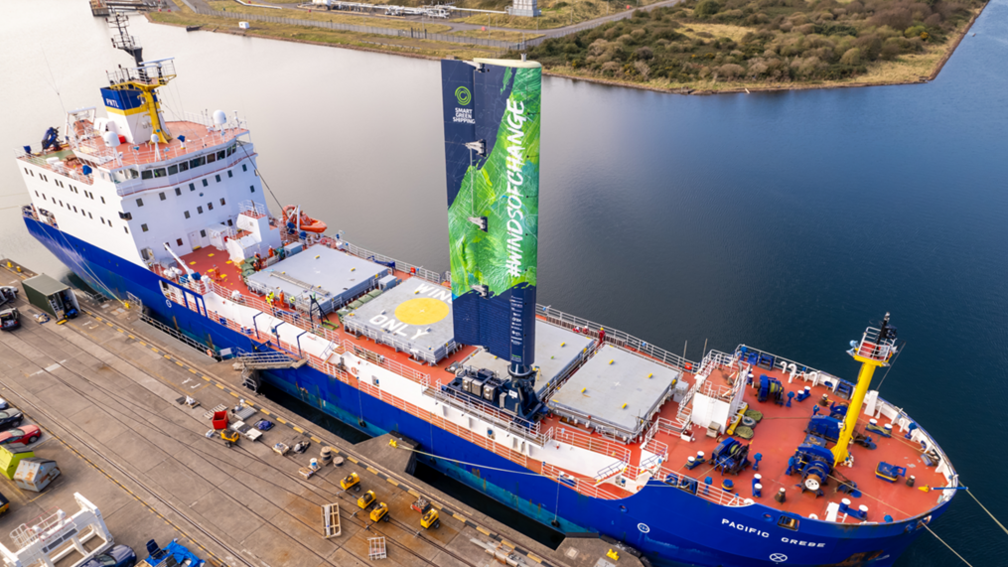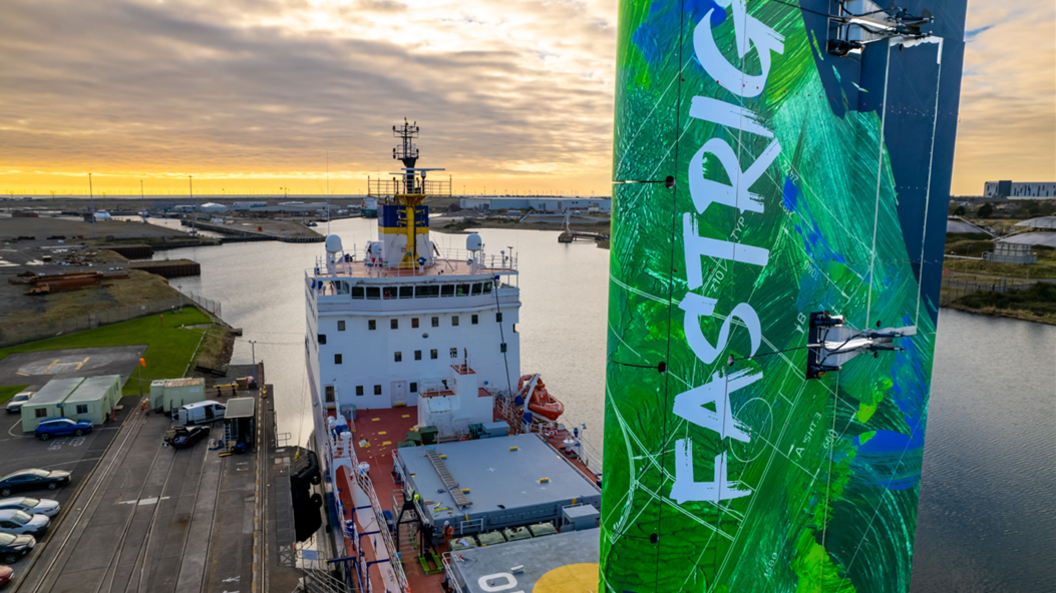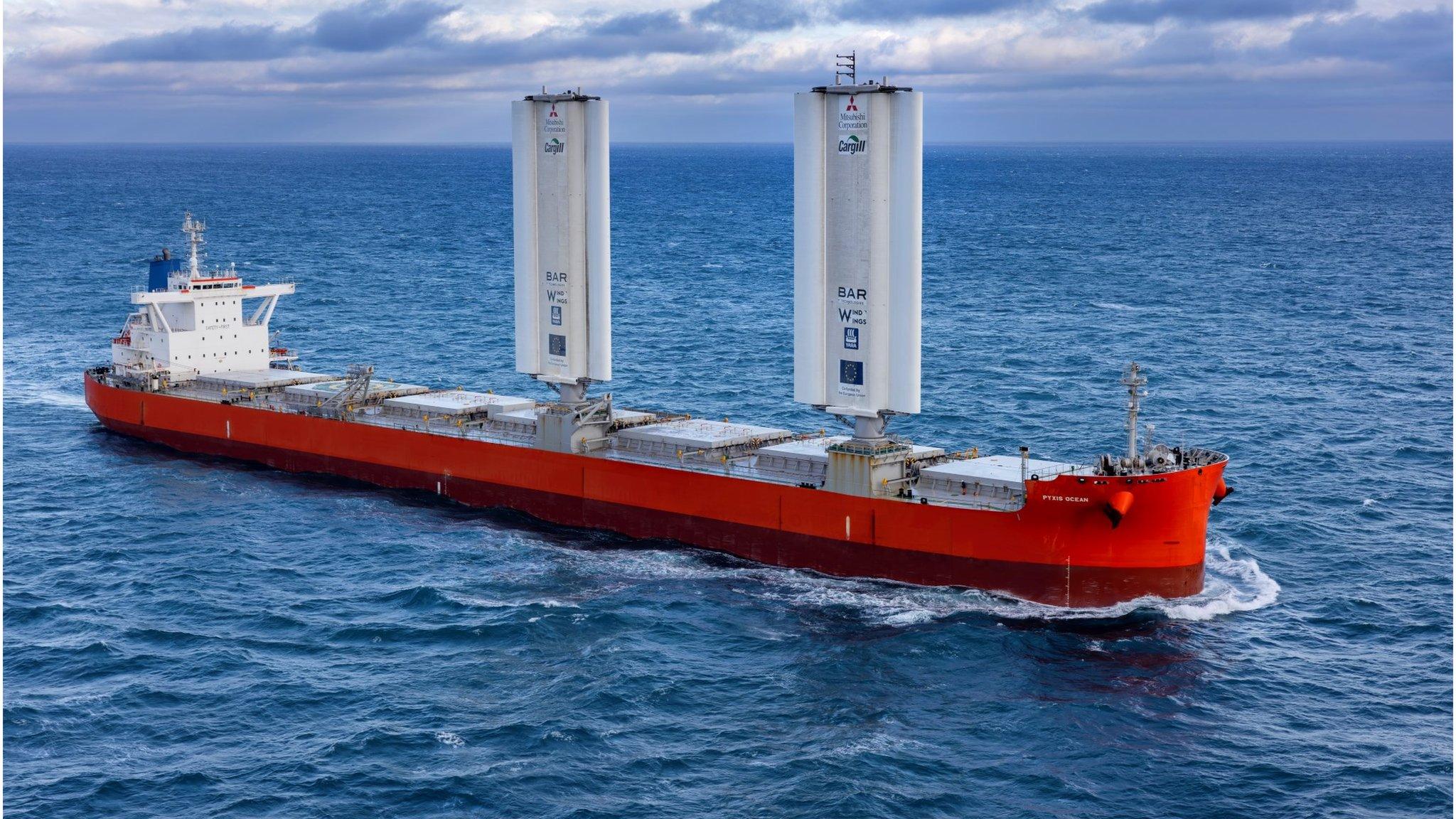How wind power could be future of cargo shipping

The 20-metre (65-ft) wing sail has been fitted to the Pacific Grebe cargo ship
- Published
An experimental wind-powered cargo ship has arrived in Southampton to undergo sea trials.
The 5,000-tonne cargo carrier, Pacific Grebe, has been retrofitted with a new 20-metre (65ft) wing-sail to allow it to be powered by wind.
Scientists from the University of Southampton are coordinating controlled sea trials to assess the ship’s performance across different conditions in UK waters.
Dr Joseph Banks, from the university's Marine and Maritime Institute, said the technology could be the "key component" in the transition to zero-carbon shipping.
The team behind the FastRig retractable test sail say the design could make large vessels less environmentally damaging by cutting carbon emissions by up to a third.
International shipping is estimated to be responsible for 837 million tonnes of CO2 annually - or 2.1% of total global emissions.
Pacific Grebe's sea trials are intended to compare the predicted saving in fuel on longer journeys with real-world data.
Dr Banks said: “Fitting 21st Century autonomous sails to commercial ships could immediately reduce energy demands and fuel consumption, lower costs, and, importantly, cut CO2 emissions."
The technology was developed by Smart Green Shipping, with funding provided by the UK government.
The Department for Transport estimates up to 40,000 ships - mainly tankers and bulk carriers - could be suitable for wind power.

The wing sail will undergo sea trials to confirm the amount of fuel saved
Chief executive of Smart Green Shipping Di Gilpin said: “We are facing a climate and nature emergency that requires innovation to rapidly reduce greenhouse gases – this is the race of our lives.
"We need alternative fuels to support global shipping’s transition to zero-emissions, but quality, energy density, availability and cost of these fuels is unknown.
"There is a simple solution – and that's wind."
Scientists at the University of Southampton have worked on maritime innovations used on ships and yachts worldwide, including at its 138m towing tank.
Maritime expert Dr Martyn Prince said accurately predicting fuel savings from wind was essential for giving ship owners confidence in investing in the technology.
“There are wind-assist technologies in development but few have had their predicted fuel savings independently verified at sea.
“Wind power harnessed using well-engineered equipment and backed by data provided by these predictive tools offers one of the most effective ways for the sector to reduce emissions,” he added.
Get in touch
Do you have a story BBC Hampshire & Isle of Wight should cover?
You can follow BBC Hampshire & Isle of Wight on Facebook, external, X (Twitter), external, or Instagram, external.
See also
- Published13 March 2024
